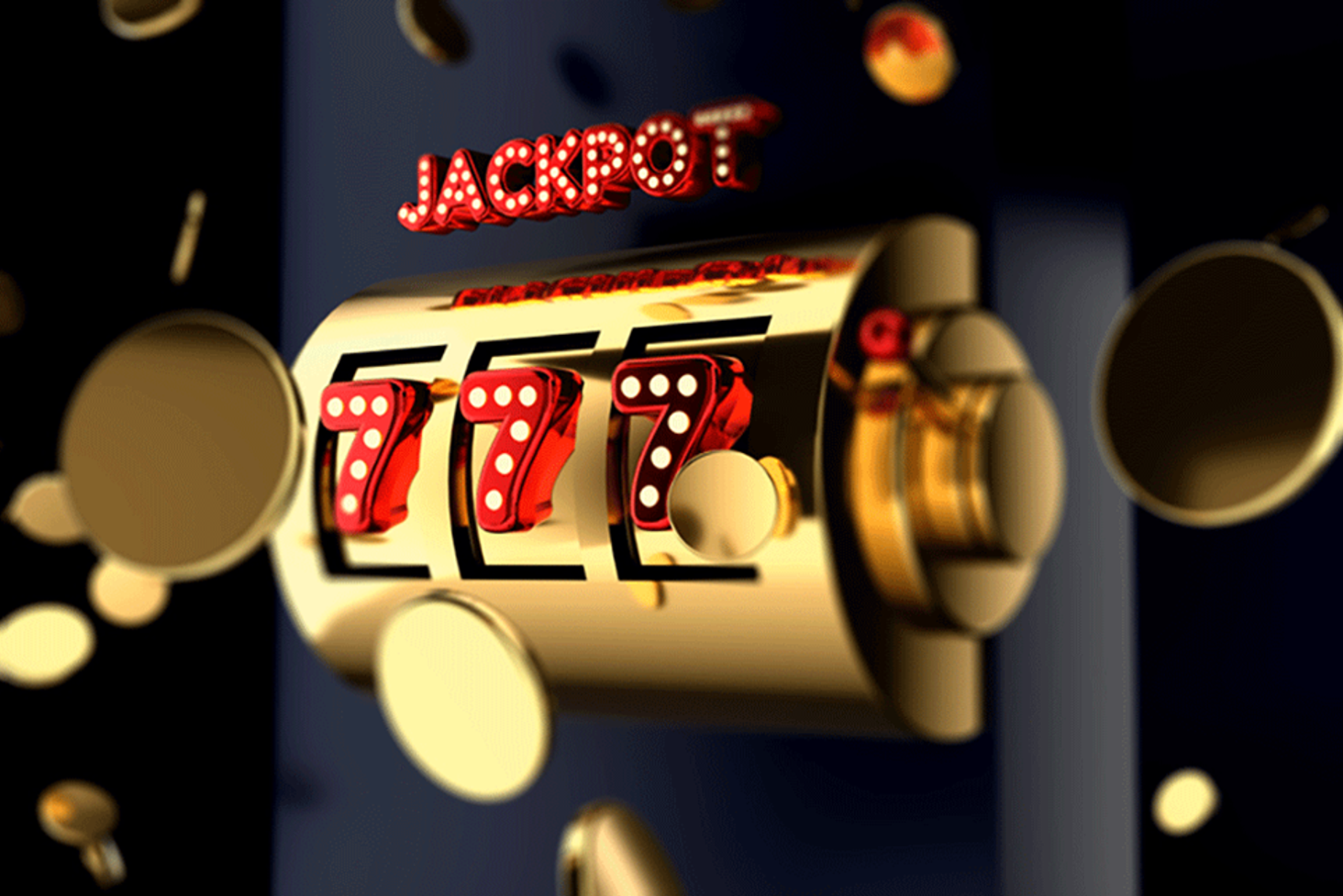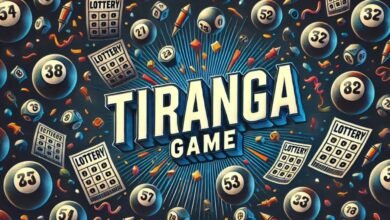Jackpot Junction: Exploring the Best Slots for Big Wins

Although “slot” may appear straightforward and modest, it has several uses and meanings in various fields. The idea of a slot machine has influenced many aspects of our everyday lives, from the glamour and spectacle of the gaming industry to the intricate workings of manufacturing and technology. This thorough investigation will examine this common phrase’s many meanings and uses, revealing its rich cultural background, valuable applications, and varied historical meanings.
In the Gaming Industry, Slots
Upon hearing the word “slot,” most people instantly picture dazzling lights, spinning reels, and the enticement of winning big in casinos and other gambling places. The slot machine, sometimes known as the “one-armed bandit,” has gained notoriety as a gaming industry representative because of its alluring gameplay and promise of immediate satisfaction.
Slot Machine Evolution
The Liberty Bell machine, created in 1895 by San Francisco machinist Charles Fey, is credited with creating the slot machine in the late 1800s. This innovative apparatus showcased three rotating reels adorned with symbols such as diamonds, spades, hearts, horseshoes, and liberty bells, paving the way for the contemporary slot machine.
Slot machine technology has advanced significantly, moving from mechanical to electromechanical and entirely computerized models. The introduction of automated systems allowed games to include more elaborate additional features, stunning visuals, and complex gameplay, all adding to the games’ excitement and appeal.
Slot Machines Online and Mobile Gaming
With the development of mobile and internet technologies, the slot machine experience has expanded outside the actual walls of casinos.
Various virtual slot games are available at online casinos and on specialized slot platforms. Classic three-reel themes and immersive video slots with eye-catching visuals and captivating plots are among the immersive offerings. Slots’ reach has been further increased by incorporating mobile gaming, enabling users to take their seamless, portable gaming experience anywhere they go.
Slot Machine Competitions and Gaming Travel
Prestigious slot tournaments are held in casinos all around the globe, drawing participants from all over to fight for big payouts and the coveted title of slot champion.
With locations like Las Vegas, Macau, and Monte Carlo drawing millions of tourists each year, lured by the appeal of top-notch casinos and the opportunity to try their luck at the recognizable slot machines, gambling tourism has become a big business.
Positions in Technology and Manufacturing
Beyond gaming, the idea of a slot machine is used in various technical and industrial situations, and it is an essential part of many businesses.
Computer Hardware Slots
Slots are physical connections or sockets used in computer hardware intended to hold memory modules, expansion cards, and other components. These slots provide computer system configuration flexibility, upgradeability, and customization.
Slots are often seen in computer hardware and include:
- Install expansion cards like network adapters, sound cards, and graphics cards on the motherboard using PCI (Peripheral Component Interconnect) slots.
- RAM (Random Access Memory) slots: These are designed to accommodate memory modules, allowing users to add more memory to their system.
- A high-speed serial link called PCIe (Peripheral Component Interconnect Express) slots connects graphics cards, SSDs, and other peripherals to the motherboard.
- With these slots, customers may customize their computers to suit their requirements, whether for multimedia creation, gaming, or specialized software.
Industrial Machinery Slots
Slots are essential components of many industrial machines and manufacturing processes. These holes often act as channels, guides, or storage for parts, instruments, or materials so they may be precisely positioned or moved through.
Several instances of slots seen in industrial equipment consist of:
- In CNC (Computer Numerical Control) machines, slots hold tools or workpieces in place while being cut, milled, or drilled.
- Guide holes in injection molding machines facilitate the flow of molten plastic or other materials and the installation of molds.
- Assembly line slots: Grooves or slots used to align and place parts during assembly.
- In industrial settings, these slots’ exact engineering and design guarantee flawless functioning, economical manufacturing, and reliable quality control.
Slots in Networking and Telecommunication
Slots are essential parts of many devices and systems in the networking and telecommunications sectors. Scalability, flexibility, and ease of maintenance are made possible by integrating modular components made possible by these slots.
In networking and telecommunications, some instances of slots are as follows:
- Router and switch slots: Used to add interface modules, line cards, or other parts to increase network capacity.
- Server rack slots: Enable efficient and well-organized installation of servers, storage devices, and other equipment.
- Mobile device slots: Hold memory cards, SIM cards, and other detachable parts.
Service providers, businesses, and consumers may all tailor their network infrastructure, update individual components as required, and adjust to changing technological needs thanks to the modular nature of these slots.
Positions in Linguistics and Language
The word “slot” has meaning in language in addition to its physical forms, especially in syntax and grammar.
Place in Grammar and Syntax
A slot in linguistics is a location or placeholder that a certain kind of word or phrase may occupy inside a grammatical framework—comprehension of the patterns and guidelines that direct language production requires understanding this idea.
In this form, a verb can only occupy the second position; nouns can only occupy the first and fourth spaces.
Slots are essential for establishing a language’s grammatical rules, which let writers and speakers create coherent sentences.
Semantics of Slot and Frame
Semantics also uses the concept of slots, especially regarding frame semantics. In semantics, a frame is a conceptual framework that depicts a particular circumstance, occurrence, or idea; slots are that frame’s fundamental parts or constituents.
For example, the “restaurant” frame may have slots for “food,” “table,” “waiter,” “menu,” and “bill.” These slots provide a more thorough comprehension of the frame and symbolize the key elements that characterize the idea of a restaurant.
Spaces for Infrastructure and Transportation
Air Traffic Control Slots
Within the aviation sector, “slots” denote specific time windows or durations that allow an aircraft to take off or land at a particular airport. Air traffic control officials meticulously organize and manage these slots to guarantee effective and safe operations.
As slot allocation helps control aircraft movement and reduce congestion on runways and airspace, it is essential at crowded airports or during heavy traffic. To preserve order and prevent any disputes or delays, airlines and pilots must respect the timeslots they have been allotted.
Parking Management Slots
The term “slots” in parking management and urban planning refers to the assigned spots or stalls where automobiles may be parked within a parking structure. Parking spaces must be managed and allocated correctly to maximize space use, reduce traffic, and maintain a smooth traffic flow.
Several technologies are used to keep track of available parking spots and help vehicles find them, including sensors, mobile apps, and parking assistance systems. In heavily crowded regions, efficient slot management enhances the parking experience and eases traffic-related problems.
Slots in Resource Allocation and Scheduling
Slots are crucial not only for transportation but also for scheduling and resource allocation in many other sectors. Slots are defined times or resource capabilities assigned to specific tasks or activities in project management, manufacturing, and service operations.
Production slots, for instance, could be allocated to various product lines or orders at a manufacturing facility to ensure the effective use of equipment and resources. Similarly, appointment slots are assigned to clients or consumers in service sectors like healthcare or customer support, enabling improved personnel availability and service delivery management.
Efficient scheduling and slot distribution may maximize resource use, boost output, and improve.
With the picturesque shoreline and busy streets, slot machine gambling in Queenslanding, a thriving coastal town, is exponentially more exciting. The attraction of the spinning reels from the surrounding casinos and gaming institutions pulls guests as they wander down the seafront. The range of games available, including traditional fruit machines and cutting-edge video slots offering a chance at fortune among Queensland’s charming seaside setting, draws in slot fans. Slot gambling heightens the already alluring ambiance of this beachside location, whether via the thrill of striking a jackpot or the suspense of discovering additional features. The draw of slot gaming increases the colorful energy of Queenslanding, making it a must-visit location for people seeking exhilarating gaming experiences by the sea, from casual gamers seeking pleasure to serious gamblers after large prizes.
Conclusion
To sum up, “slot” refers to a complex feature in many facets of our everyday life and represents flexibility, effectiveness, and structure. Slots are a fundamental concept of allocation and optimization that may be found in the flashing lights of a casino floor, the complex workings of computer gear, or the painstakingly designed timetables of transportation networks.
The fascination with slot machines in the entertainment and gambling industries transcends randomness; the prospect of thrill and anticipation draws players in. The dynamic combination of sensory stimulation and possible rewards offered by these machines, from the traditional mechanical reels of bygone eras to the contemporary digital displays of video slots, creates an immersive experience that spans decades.
The idea of slots transcends the gaming world and is used in technology as a fundamental element for growth and communication. Expansion slots in computer hardware provide a method to include extra parts, allowing users to improve and personalize their systems’ features to fit their requirements and tastes. Similarly, memory card slots enable media and data to transfer seamlessly, making it simple and convenient for consumers to increase the storage capacity of their devices.
Slots are essential to the coordination of schedules and resources in the field of transportation and logistics. Time slots are critical to efficiency in various contexts, including supply chain management, public transportation, and air travel. They make it possible to coordinate arrivals, departures, and other operational tasks seamlessly, ensuring the efficient flow of people and things.
Moreover, slots are found in networking and communication, which are the basis for effective data transfer and accessibility. Slots allow several users to share a communication channel while avoiding interference and optimizing throughput using time-division multiple access (TDMA). This allows for smooth cooperation and connection across long distances.
Essentially, slots represent a basic idea of efficiency and order that penetrates almost every aspect of contemporary life. Slot machines may be found amid the hustle and bustle of a casino floor, computer hardware’s intricate workings, or public transit schedules. They are monuments to human ingenuity and the unwavering quest for efficiency and order. The importance of slots will survive as technology develops and advances, influencing how future generations interact with systems and arrange their lives.












